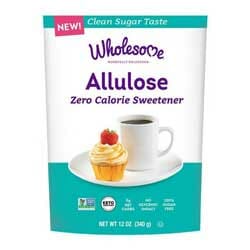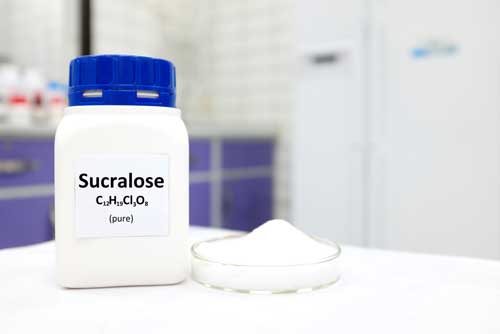Undoubtedly, honey, which we all know as the sweet, sticky, delicious, and natural sweetener, is one of the most versatile foods ever.
It can be added to so many meals as a base for our sauces, a sweetener for our juices or desserts, and so many other mouthwatering recipes.
But just like so many other foods, people on keto have to wonder if honey is keto-friendly.
So, in this post, we will explore the possibilities of including honey in a keto diet, its health benefits, and any healthier alternative to consuming honey.
Can I Include Honey In My Keto Diet?

What is Honey?
In a Live Science article, Elizabeth Palermo describes honey as civilization’s original sweetener and as a golden-looking, thick fluid produced by industrious bees.
Also, bees use nectar, which is also a source of energy for them, from plants that are flowering to create honey.
This honey is then stored inside the hive for when the bees need it to eat due to a lack of nectar to make more
How do Bees Make Honey?
Each bee has a long straw-like tongue that honey bees use to extract the nectar from flowers.
The bee will extract and swallow the nectar then, within its stomach, a digestive process takes place where the complex sugars of the nectar are broken down into simple sugars using a process called inversion.
After the bees return to their colony (nest) with the collected nectar, they give the nectar to another set of bees, who then place the nectar inside the colony and pack it away in hexagon-shaped beeswax honey cells.
The nectar is converted to honey when the bees dry it out with their wings using the warm breeze they generate.
Types Of Honey
Have you ever bought honey and noticed that some tastes different than others?
Well, unknown to many, there are several types of honey, and they all have varying flavors, which are dependent on the source of the nectar that the bees convert into honey.
Additionally, temperature and rainfall will also impact the flavor of honey.
These are the most common types of honey you will find:
1) Alfalfa honey
Alfalfa honey is light gold in color and made using nectar sourced from blue or purple blossoms and is found predominantly in Canada and the United States.
It has a lightly floral flavor and aroma.
2) Acacia honey
Acacia honey has a very light color and is almost clear with a floral flavor and a somewhat liquid state that its high fructose content helps to retain.
Acacia is the most popular type of honey across the globe and is made in abundance in North America and Europe.
3) Avocado honey
Avocado honey is very dark in color and is made from California Avocado blossom nectar and is not actually made from the avocados themselves. But it does have a rich, buttery taste.
4) Aster honey
Aster honey has a light color and a very aromatic smell. It is made from numerous wildflowers scattered across the Mid-south region of the United States. Of note, aster honey crystallizes quickly and so is not good for long-term storage.
5) Beechwood honey
Beechwood honey is made from the sap on the barks of beechwood trees in New Zealand, and as such, it has a very fragrant smell.
Also, beechwood honey is sometimes referred to as honeydew honey.
Is Honey Keto-friendly?
The keto diet is quite complex yet delicate, and as such, you have to be very careful of what you eat since even the smallest of things can throw you right out of your ketogenic state.
For this reason, you must ensure that eating honey on a keto diet is acceptable.
To answer your question, no, honey is keto-friendly because it contains 17g of carbs per tablespoon of raw honey.
On a ketogenic diet, you must watch your carb intake, which is limited to about 50 grams per day.
Furthermore, honey has no fat or dietary fiber and a minimal quantity of protein.
Considering that honey contains that much carb in such a small serving, you can imagine that consuming honey would leave very little room for any other food with even a low carbohydrate content.
Also, you must pay keen attention to the type of honey that you are purchasing, as some are man-made and actually artificial.
Further, some pure honey gets stretched with sugar and other artificial sweeteners and colorants.
The bottom line, honey is not keto-friendly enough for you to use in large amounts.
However, if you can exercise real self-control and accurately calculate the grams of carbs, then you can try to use honey in your ketogenic diet occasionally.
Your use of honey will also depend on which type of ketogenic diet you are on; targeted ketogenic diet or cyclical ketogenic diet. The carbohydrate consumption for each differs slightly.
Is Honey Healthy?
Honey may not exactly be keto-friendly, but it is filled with many vitamins, minerals, and other nutrients that largely contribute to your overall health and wellness. Honey contains
- amino acids
- calcium
- magnesium
- manganese
- niacin
- pantothenic acid
- phosphorous
- potassium
- riboflavin
- zinc
Overall, honey is healthy and makes a potent addition to your meals.
Health Benefits of Raw Honey
1) Filled with antioxidants
Raw honey is jampacked with a host of plant chemicals that function as antioxidants and each type of honey will have more plant chemicals than others.
When you eat honey, these antioxidants will aid in protecting your body from free radical cellular damage.
Polyphenols, which are the antioxidant compounds in raw honey, can actually help in preventing certain diseases like cardiac conditions and cancer.
They act as an anti-inflammatory against oxidative damage.
These compounds may also be beneficial to respiratory, gastrointestinal, and nervous systems.
2) Antibacterial and antifungal properties
The propolis in raw honey has been shown to have antifungal and antibacterial properties and can treat candida infections for both internal and external uses.
But its efficacy is highly dependent on the type of honey that must also be medical grade.
3) Remedy a sore throat and cough
For centuries, honey has been used with lime or garlic to treat upper respiratory conditions, including cold and flu symptoms, like coughing and sore throat.
It can be had as a tincture or hot tea with a bit of lemon and sometimes garlic is used.
Add it to hot tea with lemon when a cold virus hits.
Honey’s ability to remedy these problems is attributed to its antibacterial and anti-inflammatory properties.
4) Heals wounds
Honey has antimicrobial properties that may be able to facilitate improved wound healing and prevent microbial infiltration.
5) Help with digestive issues
Diarrhea, bloating, and gas are three of the most common digestive problems that honey has been proven to treat effectively.
Honey is also loaded with prebiotics and can boost digesting and good gut bacteria.
Additionally, honey may be able to treat conditions like ulcers caused by the Helicobacter pylori (H. pylori) bacteria.
Keto Honey Substitute for Keto Diet
1) Monk fruit
Monk fruit, which is a tiny plant that is round and green, is often used to create a sweetener that is quite healthy.
The monk fruit, which is originally from Thailand and Southern China, is very sweet and has anti-inflammatory properties.
However, it has no sugar, which makes it a sugar-free sweetener and the best keto honey substitute you could choose.
Additionally, it is one of the most commonly used low-carb sweeteners since it contains no carbs.
Plus, it will not cause a spike in your blood sugar as opposed to how regular sugar or honey might.
2) Stevia

Stevia is possibly the most popularly used alternative sweetener that is ideal for low sugar, low carb diet.
This natural sweetener is made from a sweet-tasting plant extract primarily from Paraguay.
Of a fact, stevia is roughly about 200 to 300 times sweeter than white sugar; however, unlike regular sugar and artificial sweeteners, stevia is a healthy alternative and is also ideal for a keto diet since it has no carbs, no sugars, and no calories.
Therefore, with stevia, you need not worry about your sugar consumption and carb intake, a keto dieters’ dream.
3) Allulose

Allulose sweetener looks like sugar granules but has almost no effect on your blood sugar and is great for a keto diet, as it contains very few calories and carbs.
It’s not the most common though it does make one of the best honey and sugar substitutes for keto recipes.
4) Sucralose

Sucralose is quite common and even if you have not interacted with it, chances are that you have heard the name before.
It is a great low-carb alternative to honey and is even said to aid weight loss.
Consequently, you will find it as a main component of low-calorie drinks and foods, diet soda that still need to have a sweet taste.
Sucralose contains no calories and no carbohydrates, and unlike honey, there are no sugar molecules to mess up your blood sugar levels.
Other Low carb sweeteners
- Maple syrup
- Swerve
- Erythritol
- Xylitol
Bear in mind that not all of these sugar substitutes are natural sources though they may contain zero grams of carbs and sugar.
Final Thoughts
The keto diet is meant to help you burn fat and lose weight; therefore, you really don’t want to do anything that will affect its efficacy after so much effort.
As such, since honey is not low carb and keto diets restrict carbs, we suggest you avoid the use of honey while on a ketogenic diet.
Keto dieters should opt for healthier alternatives and if you must have it, just be very careful of how much honey you consume and how often you do so.
